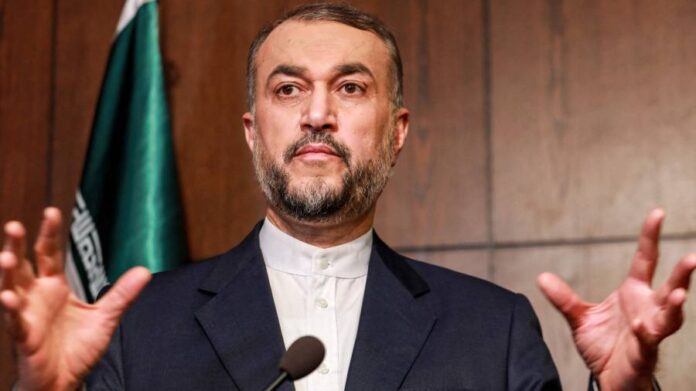Iran’s foreign minister has said Tehran is in the final stages of negotiating a prisoner swap with the US, claiming progress on a highly sensitive and significant deal that was immediately disputed by Washington.
Hossein Amirabdollahian told state television on Sunday that the two countries were on the cusp of exchanging prisoners despite tensions rising in recent months over nuclear issues and ties with Russia.
“We have reached an agreement in recent days, and if everything goes well on the American side, I think we will witness a prisoner swap in the short-term,” he said. “As far as we are concerned everything is ready.”
But continuing diplomatic challenges were underlined when the White House dismissed the suggestion of an imminent deal. A spokesperson for the US National Security Council said Iranian statements regarding a deal were “another especially cruel lie that only adds to the suffering of [the prisoners’] families”.
“We are working relentlessly to secure the release of the three wrongfully detained Americans in Iran,” the spokesperson said. “We will not stop until they are reunited with their loved ones.”
The Islamic Republic, which holds at least three Iranian-American dual nationals in its prisons, has long said it is ready for a prisoner swap as long as any deal releases Iranian funds held in South Korea.
More than $7bn of Iran’s oil revenue has been frozen in two South Korean banks because of American sanctions imposed after former president Donald Trump unilaterally withdrew from the 2015 nuclear accord Iran signed with world powers.
A senior western diplomat in Tehran said the possibility of a prisoner swap had new “momentum”.
Another person briefed on the discussions said no final deal had been reached but progress had been made. Discussions were still being held on how the funds would be released, the person added.
President Joe Biden could face a backlash domestically and from Middle East allies, particularly Israel, if his administration is seen to authorise billions of dollars being transferred to the regime.
One option would be for the funds to be held in an account by Qatar to ensure their use for non-sanctioned goods for Iran, such as medicine and food, the person briefed on the talks said. It is unclear whether the release of any Iranian prisoners in the US was among Tehran’s demands.
Negotiations over a possible prisoner swap were held in September at the time of the UN General Assembly meeting in New York. Qatar, which has good relations with both Washington and Tehran, helped facilitate the talks, diplomats say.
The following month, Tehran temporarily released Siamak Namazi, an Iranian-American businessman, and lifted the travel ban on his 85-year-old father, Baquer. But the diplomatic efforts were scuppered as the regime cracked down on nationwide protests and it was accused of selling armed drones to Moscow, which Russian forces have used in their war in Ukraine.
Iranian analysts said disappointment was felt in the regime, which is under mounting social and economic pressure, that the release of Baquer Namazi did not lead to frozen funds being released.
Any prisoner swap would come against the backdrop of mounting tensions between the Islamic republic and US and European powers.
Iran is under hundreds of US sanctions, which have cut Tehran off from the global financial system and frozen billions of dollars in oil revenue. Western states, meanwhile, have been infuriated by Iran’s crackdown on the protests last year and its decision to sell drones to Moscow.
They also blamed Iran for stymieing efforts to revive the 2015 nuclear deal. Tehran rejected an EU draft agreement to save the accord in September that all other signatories had endorsed. Analysts said a successful prisoner swap could help lay the foundations for talks to restart.
Credit: Source link















